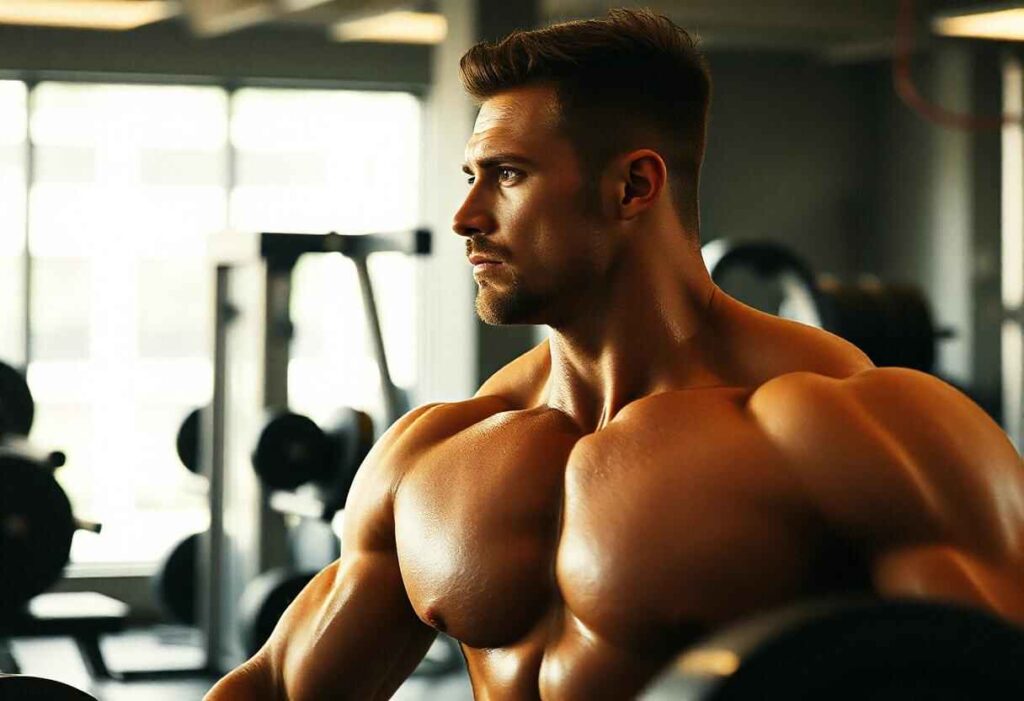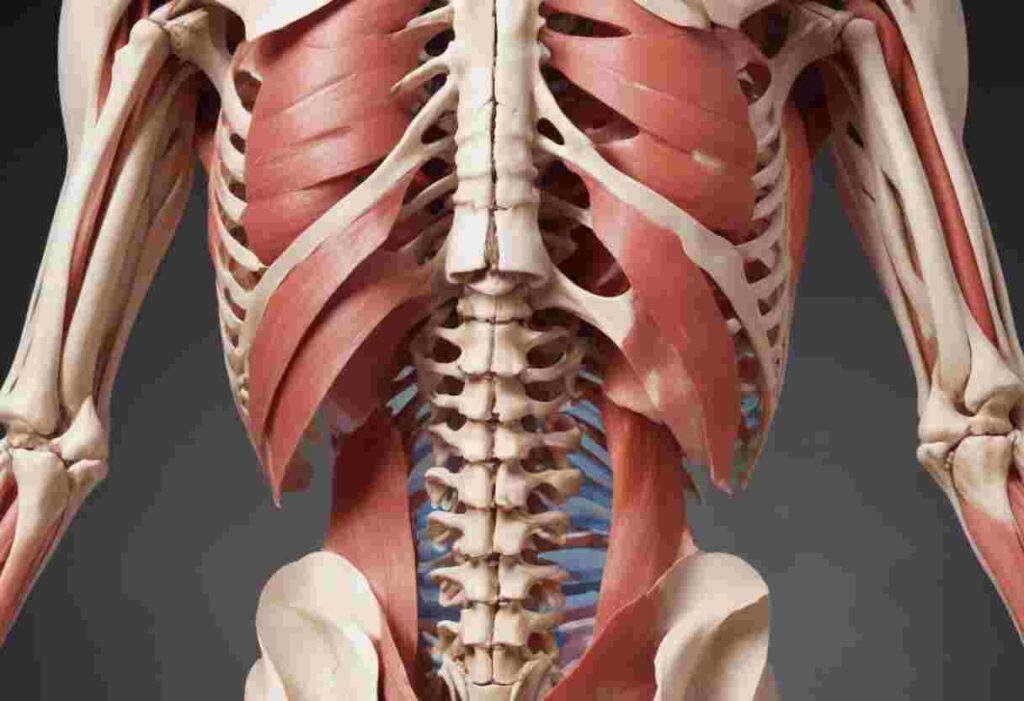Protein is essential for building and maintaining the body’s tissues, muscles, and bones. It is made up of amino acids and is crucial for many important body functions that keep us alive and help us grow. Knowing why protein is important, where to find it, and how it affects our bodies can help people make better food choices for good health and physical fitness.
Role of Protein in Building Muscles and Tissues
Protein is fundamental to every cell in the body and is involved in many important processes, including:
- Tissue Repair and Growth: Protein is necessary for fixing and growing tissues. When the body gets injured or worn out, proteins called enzymes help repair and heal these tissues.
- Muscle Development: Muscles are mainly made of protein. When you exercise, especially lifting weights, your muscle fibers get tiny tears. The body uses protein from your diet to fix these fibers, making them bigger and stronger.
- Bone Health: Protein helps keep bones strong and dense. Collagen, a type of protein, forms the structure of bones, and other proteins help with calcium absorption and bone strength, preventing problems like osteoporosis.
- Enzyme and Hormone Production: Proteins act as enzymes, speeding up important reactions needed for digestion, energy production, and other processes. They also function as hormones, which control various body functions like growth, metabolism, and reproduction.
- Immune Function: Antibodies, which are proteins, are crucial for the immune system. They identify and neutralize harmful bacteria and viruses, helping the body fight off infections and diseases.
| Function of Protein | Description | How It Supports Muscle Growth | Sources of Protein |
| Muscle Repair | Protein helps repair muscle fibers damaged during exercise. | Provides amino acids needed to rebuild and strengthen muscles. | Lean meats, eggs, dairy, legumes. |
| Muscle Growth | Protein is essential for muscle hypertrophy (growth). | Stimulates muscle protein synthesis, leading to increased muscle size. | Chicken, fish, tofu, quinoa. |
| Tissue Maintenance | Protein maintains and regenerates tissues throughout the body. | Ensures that all tissues, including muscles, are healthy and functioning properly. | Nuts, seeds, beans, lentils. |
| Enzyme and Hormone Production | Protein aids in producing enzymes and hormones crucial for muscle function. | Supports metabolic processes and energy production during muscle building. | Seafood, soy products, protein supplements. |
Sources of Protein
Protein can be found in many different foods, both from animals and plants. Each type of food provides different amino acids and other nutrients that are good for your health.
Animal-Based Protein Sources
Animal-based proteins are complete proteins because they have all nine essential amino acids that our bodies can’t make. Common sources include:
- Meat: Beef, pork, lamb, and chicken are great sources of complete proteins, which have all the essential amino acids our bodies need.
- Fish and Seafood: These provide high-quality protein and omega-3 fatty acids, which help reduce inflammation and support heart health.
- Dairy Products: Milk, cheese, and yogurt give us protein, calcium, and vitamin D, which are important for strong bones.
- Eggs: Eggs are a versatile and complete protein source, offering all essential amino acids along with vitamins and minerals.
Plant-Based Protein Sources
For people following a vegetarian or vegan diet, plant-based proteins can also provide essential amino acids. Make sure to eat different kinds of these foods to get all the important amino acids your body needs.
Common sources include:
- Legumes: Beans, lentils, chickpeas, and peas are full of protein and fiber, which help with digestion and give you lasting energy.
- Nuts and Seeds: Almonds, walnuts, chia seeds, and flaxseeds are rich in protein, healthy fats, and antioxidants.
- Soy Products: Tofu, tempeh, and edamame are great plant-based protein sources, often used instead of meat in vegetarian and vegan diets.
- Whole Grains: Quinoa, barley, and brown rice have a good amount of protein and essential nutrients like fiber, vitamins, and minerals.

Integrating These Nutrients for Optimal Health
To keep your muscles, tissues, and bones healthy and strong, it’s important to eat a balanced diet rich in these key nutrients:
- Protein Sources: Eat lean meats, poultry, fish, eggs, dairy products, legumes, nuts, and seeds to get enough protein.
- Calcium-Rich Foods: Consume dairy products, leafy green vegetables, fortified plant-based milks, and fish with bones (like sardines and salmon) for calcium.
- Vitamin D Sources: Get enough sunlight and include foods like fatty fish, fortified dairy products, and egg yolks in your diet. Consider supplements if you live in areas with limited sunlight.
- Magnesium-Rich Foods: Eat nuts, seeds, whole grains, green leafy vegetables, and legumes to get enough magnesium.
- Phosphorus Sources: Include meat, dairy products, fish, poultry, nuts, seeds, and whole grains in your diet to ensure you get enough phosphorus.
Muscle Development and Maintenance
Muscle growth, or hypertrophy, depends a lot on getting enough protein. When you exercise, especially with strength training, your muscles get tiny tears. The body uses amino acids from the protein you eat to repair these tears, which makes your muscles bigger and stronger over time.
Protein also helps prevent muscle loss, known as atrophy. This is important for older person because muscle mass naturally decreases with age. Eating enough protein can help reduce this loss, keeping muscles strong and functional, which is crucial for moving around and maintaining a good quality of life.

Protein Deficiency and Its Consequences
Protein deficiency, though rare in developed countries, can cause serious health problems. Kwashiorkor and marasmus are two types of malnutrition that mostly affect children in poorer regions.
- Kwashiorkor: This condition shows up with swelling, a big liver, and a swollen belly. It happens when there’s not enough protein, even if there’s enough calories.
- Marasmus: Marasmus happens when there’s a severe lack of calories and protein. It leads to extreme weight loss, muscle wasting, and a weaker immune system.
Even in developed countries, not getting enough protein can cause issues like muscle loss, a weaker immune system, tiredness, and slower healing. Making sure you get enough protein is crucial for staying healthy and avoiding these problems.
Conclusion
To keep your muscles, tissues, and bones healthy, you need a mix of nutrients, with protein being key. Calcium, vitamin D, magnesium, and phosphorus are also crucial. Eating a balanced diet with lots of nutrient-rich foods is important for keeping your body strong and healthy. Knowing how these nutrients work can help you choose foods that support your body’s strength and overall well-being.

